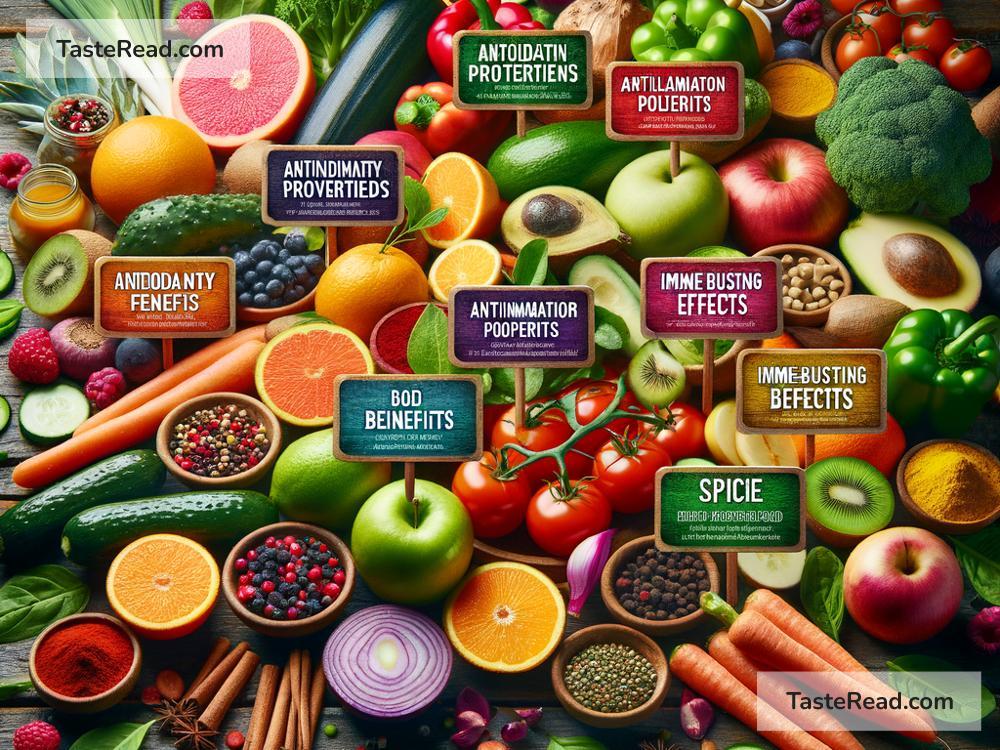Exploring the Role of Phytochemicals in Health
Nature has always been a source of healing and nourishment for our bodies. Plants provide us with food, oxygen, and countless nutrients that help us stay healthy. Among the powerful compounds found in plants are phytochemicals. While the name might sound complex, phytochemicals are relatively simple to understand, and their benefits are important for our health. But what are they, and why should we care? Let’s dive into understanding these fascinating natural compounds and their role in keeping us healthy.
What Are Phytochemicals?
Phytochemicals are natural substances found in plants. The word “phyto” itself means “plant,” so phytochemicals are simply chemicals made by plants. These compounds help plants survive by protecting them from harmful insects, diseases, and environmental stress. For example, phytochemicals can help plants defend themselves from extreme weather or ward off predators.
For humans, phytochemicals have a different yet important purpose. When we eat fruits, vegetables, and other plant-based foods, we also consume these phytochemicals. The exciting part is that they can play a big role in boosting our health and protecting us from diseases.
Where Can You Find Phytochemicals?
Phytochemicals are everywhere. They’re found in colorful fruits, leafy green vegetables, whole grains, nuts, seeds, beans, spices, and even tea and coffee. If you’ve ever heard someone suggest “eating the rainbow,” it’s because different colors of fruits and vegetables often come with different types of phytochemicals.
For example:
– Red foods like tomatoes and strawberries are rich in lycopene, which is known for its antioxidant properties.
– Green foods like spinach and broccoli contain chlorophyll and other compounds that may protect cells from damage.
– Orange and yellow foods like carrots and sweet potatoes are loaded with beta-carotene, which supports eye health.
– Blue and purple foods like blueberries and eggplants have anthocyanins, which can help with inflammation and heart health.
The more variety you add to your plate, the better your chances of getting a wide range of these health-boosting compounds.
How Do Phytochemicals Help Our Health?
Phytochemicals are often referred to as “nature’s medicine,” thanks to their powerful effects on the body. Here’s how they help us stay healthy:
-
Acting as Antioxidants
One of the most important jobs of phytochemicals is to act as antioxidants. Antioxidants are like shields for our cells. They protect our body from something called free radicals, which are unstable molecules that can damage cells and lead to illnesses like cancer, heart disease, and aging-related issues. -
Reducing Inflammation
Inflammation is the body’s way of protecting itself when something goes wrong, like during an injury or infection. However, too much inflammation over a long period can lead to diseases such as arthritis or diabetes. Some phytochemicals, like flavonoids found in tea and citrus fruit, help reduce inflammation, lowering the risk of chronic illness. -
Supporting Heart Health
Phytochemicals such as polyphenols, found in foods like red grapes and dark chocolate, are good for the heart. They improve circulation, reduce blood pressure, and lower the chances of plaque forming in arteries. -
Fighting Cancer
Some phytochemicals, like sulforaphane in broccoli and isoflavones in soy, may help fight cancer. They work by interfering with cancer cells’ growth and improving the overall health of normal cells. -
Boosting Immunity
Phytochemicals often support our immune system, helping us fight infections and illness more effectively. -
Balancing Hormones
Certain phytochemicals, such as lignans found in seeds and whole grains, can promote hormonal balance, which might be helpful for women dealing with menopause or other hormone-related conditions.
Simple Ways to Add Phytochemicals to Your Diet
Adding more phytochemicals to your everyday meals doesn’t require a drastic change. Here are some simple ideas:
- Eat more fruits and vegetables. Try swapping snacks like chips or candy with apples, carrots, or other colorful produce.
- Choose whole-grain options like brown rice, quinoa, or whole-grain bread instead of refined grains.
- Sprinkle nuts and seeds onto salads, smoothies, or oatmeal.
- Include herbs and spices like turmeric, cinnamon, and parsley in your cooking.
- Drink green tea or coffee (without too much sugar) as a phytochemical-rich beverage option.
The Importance of Variety
No single fruit or vegetable contains every type of phytochemical. That’s why variety is key. The more diverse your diet, the wider range of phytochemicals you’ll consume. Try new foods, experiment with recipes, and make your meals colorful.
Are There Any Risks?
For most people, phytochemicals are perfectly safe when consumed through food. However, some supplements that contain concentrated amounts of phytochemicals may not be suitable for everyone. Before taking them, it’s a good idea to talk to a doctor or dietitian, as high doses could have side effects.
Conclusion
Phytochemicals are small but mighty compounds packed into plant-based foods. They act as natural protectors for plants and provide powerful health benefits for humans. By eating a variety of fruits, vegetables, grains, nuts, and seeds, we can enjoy their antioxidants, anti-inflammatory properties, and disease-fighting abilities.
Food is more than fuel for the body—it’s a tool for staying healthy. So the next time you’re grocery shopping or cooking a meal, remember the power of phytochemicals and choose colorful, plant-based foods. Your body will thank you!


